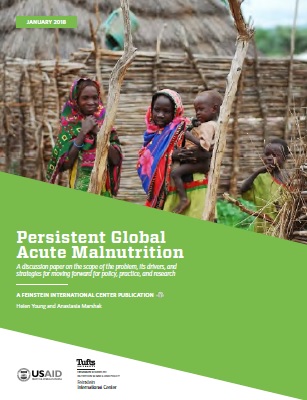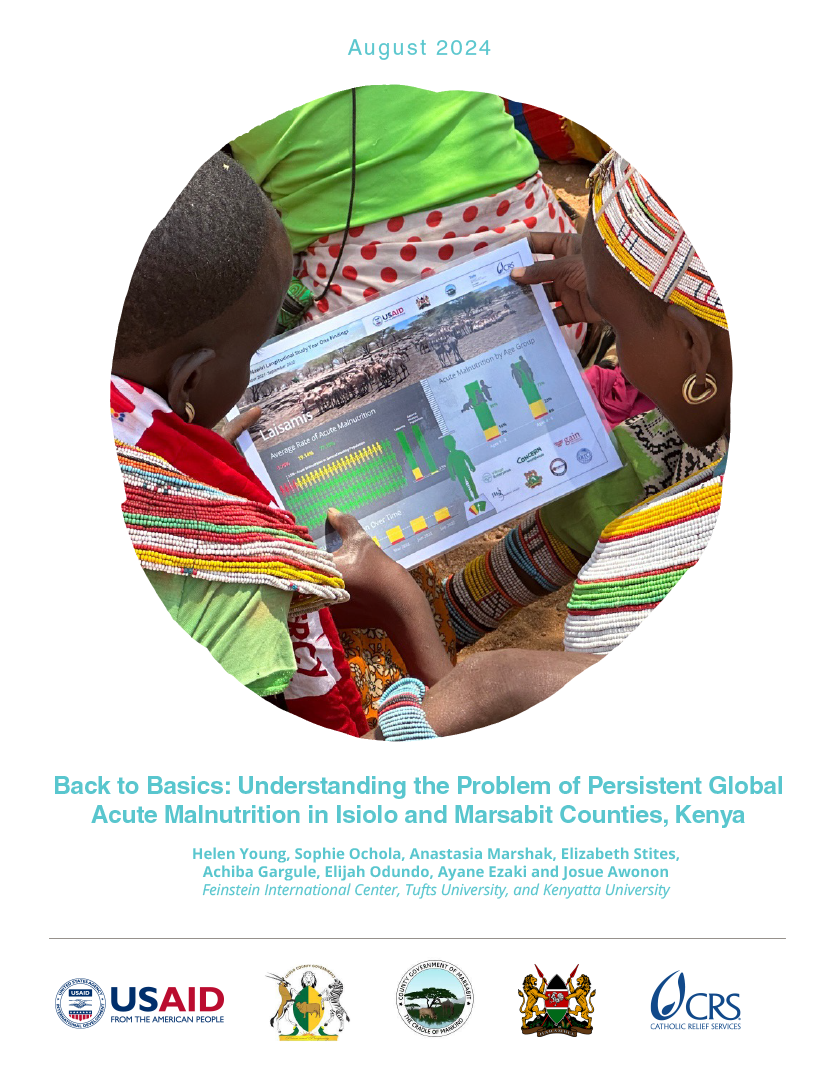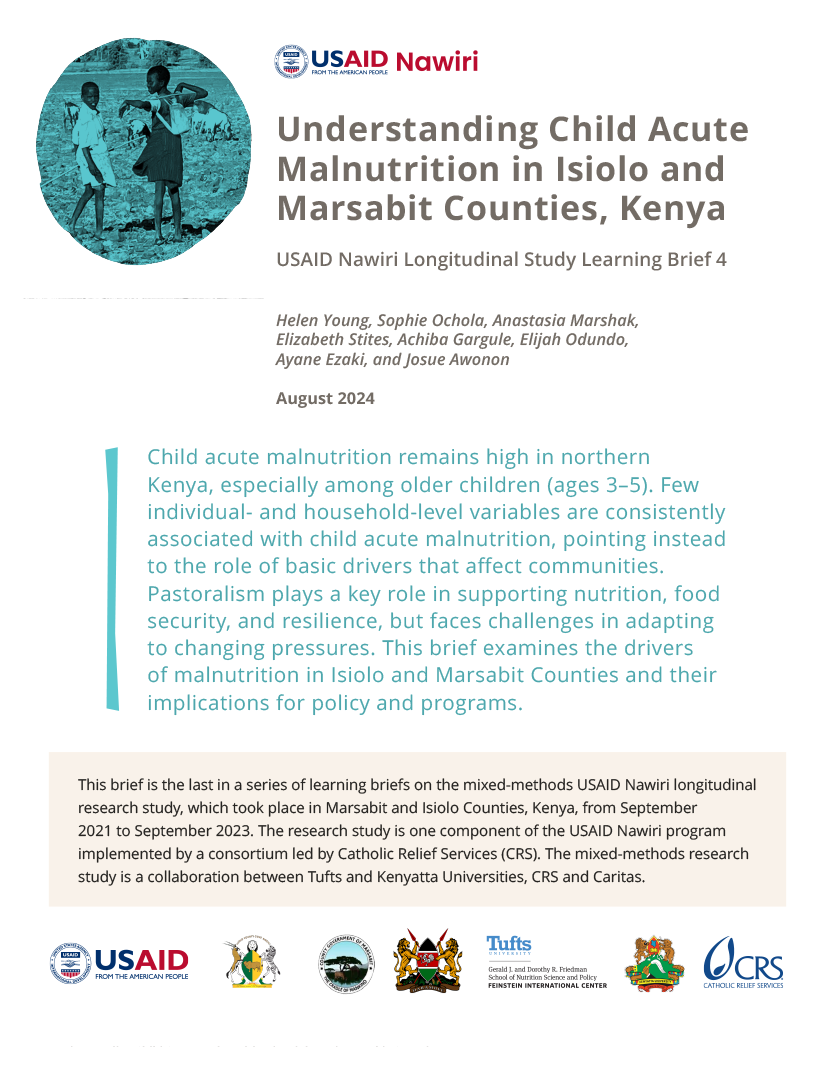In many protracted emergencies, the prevalence rates of global acute malnutrition (GAM) regularly exceed the emergency threshold of > 15% of children despite ongoing humanitarian interventions. The widespread scale and long-lasting nature of “persistent GAM” means that it must be a policy and programming priority. Drawing on a literature review and a series of key informant interviews, this paper describes the following:
- Scale and duration of the persistent GAM problem
- Perceived causal pathways
- Methodological challenges in identifying trends
- Implications for current practice and policies
- Implications for future research
The briefing paper is available here.
This paper was made possible by the generous support of the American people through the United States Agency for International Development (USAID) Center for Resilience. The contents do not necessarily reflect the views of USAID or the United States Government.







